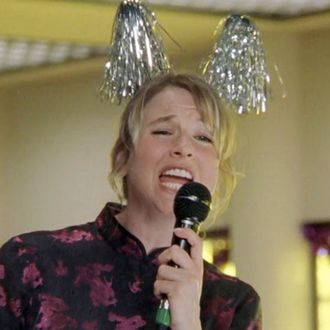
An investigation into the joy and pain of fitting in: With this series, we’re exploring the pathologies, hierarchies, and quirks of female socialization from high school to the workplace and beyond.
I had never been a boss before (unless you count being the editor of my college magazine for a year — which I don’t) when I got the executive editor job at BuzzFeed five and a half years ago. I was excited for many reasons, not least of which was that I thought I’d finally have the chance to be the great boss I’d never had. I envisioned being tough but fair, responsible and magnanimous, someone in whom my direct reports would want to confide and whose advice they would take gratefully. And I vowed to be the kind of boss you’d want to hang out with. In my decade-plus of working, I never understood why my managers had always been so unsocial. I wanted to be different.
Before becoming a boss, I made friends at my various workplaces easily; being friendly with my co-workers was integral to my workplace happiness. I had friends outside of work, of course, but work friends made the day tolerable. Of course, a large part of the nature of a workplace friendship is bonding over your shared misery, whether real or imagined. And that bonding tended to be sprinkled with complaints about our bosses. “Does she even do any work?” I would type to a friend about my boss. “Like seriously I think she just sits in meetings all day.” I laugh (ruefully!) now at my naïve misunderstanding, and the implication that meetings are somehow a way of blowing off more serious work.
When I got on the other side, I quickly learned how misguided I’d been. First of all, being a boss requires a lot of meetings. A lot. There are weekly one-on-ones with your direct reports. There are daily meetings with the senior staff and weekly meetings with the executives. There are departmental meetings. There are performance reviews, and there are job interviews — when I wondered why it took so long to hire people at my previous jobs, now I knew. Hiring is itself a full-time job. And then in the middle of all of that — 15 minutes here, half an hour there — I was also expected to put out whatever fires that came up, and there were always fires. There’s not much time left in the day, in other words, to become friends with anyone.
My sense of isolation grew over time. When a woman who worked for me started dating someone else in the office, I heard that they’d been hanging out with other people we worked with — but she didn’t tell me until one day, months into their relationship, when she asked me to have lunch in order to come clean that they’d been dating. I was happy for her, but also felt a little sad; it felt like she was telling me more for HR reasons than for anything else, even though we didn’t have a policy about dating people in the office. Certainly she was under no obligation to tell me — but it just served to highlight how much my status had changed, and how I didn’t feel totally comfortable with it.
I compensated by trying to be a cruise director. Not long after I started my new job, I suggested that everyone go out for karaoke. People seemed reasonably excited about it; we got to the karaoke bar and for a couple hours, everyone sang, drank, and seemed to be having a good time. And then, as things were winding down, I noticed that a few people seemed to be leaving together, and I quickly gathered that they were going to a second location! Without me.
I knew that my feelings of being left out were not rational — I couldn’t expect that I was going to automatically infiltrate every group of friends — but I couldn’t help but have the same feeling you have in high school when you find out that you weren’t invited to the party that weekend. But now it was compounded by the feeling of embarrassment at being a woman in her 30s who felt bad that people she wasn’t even friends with weren’t inviting her out to the after-party. What was wrong with me? Why couldn’t I just get over it?
I found myself becoming hyperaware of who was hanging out with whom in the office — not even who was dating whom (although of course that was interesting too), but who had become friends. I adopted a persona that felt — not haughty exactly, but an “I have my own friends anyway so I don’t need to be hanging out with you” persona. Even though I kind of really wanted to.
And even the times when I was invited out to drinks sent me into a tailspin. Did they really like me, or were they just trying to kiss up to me because I’m the boss? For someone like me — an anxious extrovert who genuinely likes people but is also painfully aware of being excluded — this was an almost instant perfect storm of stress.
After a few years, I’d had enough. I think it takes a particular kind of person to be a good boss — someone who cares less about what people think of them, for starters — and I was feeling like I was not it. Certainly, the social aspects of my job were not the only reasons I was unhappy — I was coming home stressed every night, answering emails and chats at all hours — but I felt socially isolated in a way that I never had when I was just an employee.
When you’re not the boss, you have outlets if you’re feeling frustrated at work, or have a problem with co-worker. When you’re the boss, you don’t: It feels unseemly, for one thing, and for another, there just aren’t as many people around to complain to. You can’t complain to the people who work for you, for obvious reasons, and I also felt like I needed to maintain this brave face with my boss. So my husband and friends outside of work bore the brunt of it — but of course, they couldn’t really understand what I was struggling with.
My husband gently suggested that I talk to my boss about possibly switching jobs, and I prickled. In most workplaces, it can seem that the only way up is to become more senior, to have people and departments you’re in charge of, and I worried that relinquishing my job as a boss would mean that I had failed. But I couldn’t go on like this.
Finally, I gave up my management role and became a staff writer, and became instantly happier. Of course, it wasn’t just for social reasons, but I soon realized that my personality is just too neurotic to be an effective boss — or a happy one. (Being a writer, on the other hand, rewards neuroticism. Or at least neuroticism is more at home here.) Now I could go out for drinks with my co-workers and not have everyone expect I’d pay for them with my corporate card. I was immediately privy to important office gossip via text. Maybe most important, I was invited to the wedding of someone who had formerly reported to me — and I didn’t have to worry that she had invited me out of obligation. She invited me because I wasn’t just her old boss. I had become her actual friend.





